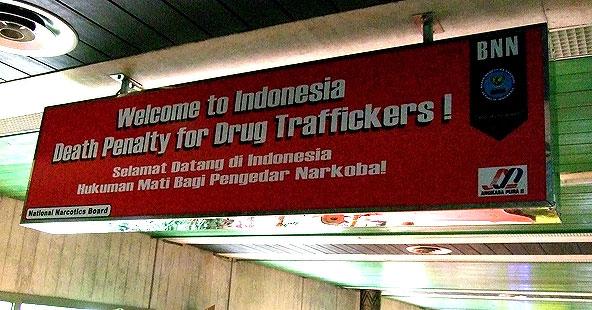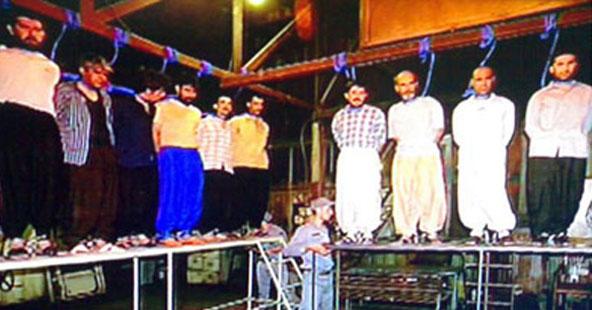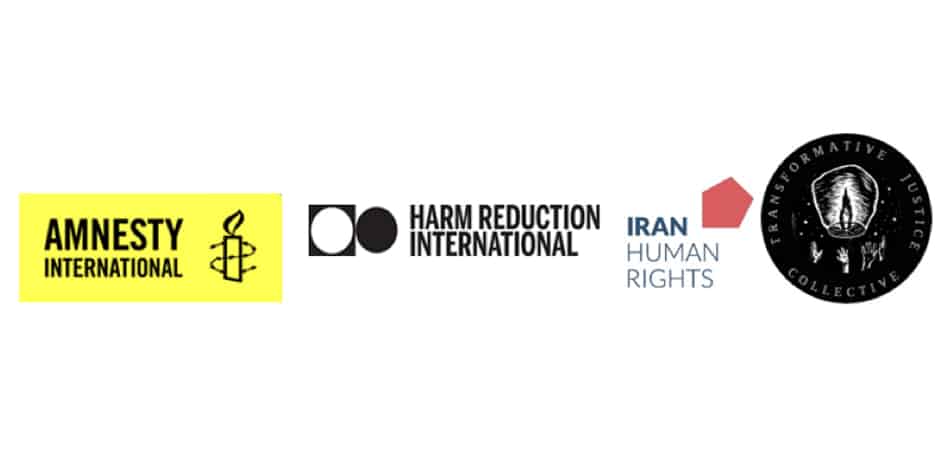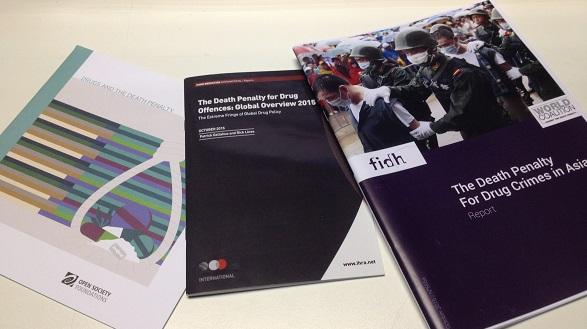
Indonesia: execution for drug crimes is no solution
Asia
We strongly condemn the executions of six death row prisoners in Indonesia that took place on 18 January, 2015. All executed prisoners had been convicted of drug trafficking: Marco Archer Cardoso Moreira (Brazilian); Namaona Denis (Malawian); Daniel Enemuo alias Diarrassouba Mamadou (Nigerian); Ang Kiem Soei alias Kim Ho alias Ance Tahir alias Tommi Wijaya (Dutch); Tran Thi Bich Hanh (Vietnamese); and Rani Andriani alias Melisa Aprilia (Indonesian citizen).
The implementation of the death penalty was used by the government to show its commitment to eradicating drug-related crimes. While the actual deterrent effect of executions on those crimes is yet to be demonstrated, it is clear that the executions were carried out in violation of a non-derogable right of every human being, the right to life.
We are highly sceptical that the executions would effectively end drug crimes. Instead, the Indonesian government should take other measures to break the chain of crime and solve the issues involving organizations operating in complex criminal networks, while protecting the right to life of all persons as enshrined in national and international human rights law.
It is also regrettable that the executions were carried out despite the recommendations of the UN Human Rights Committee, which has reviewed Indonesia’s implementation of the International Covenant on Civil and Political Rights (ICCPR) and concluded, among others, in July 2013:
“(Indonesia) should reinstate the de facto moratorium on the death penalty and should consider abolishing the death penalty by ratifying the Second Optional Protocol to the Covenant. Furthermore, it should ensure that, if the death penalty is maintained, it is only for the most serious crimes. In this regard, the Committee recommends that the State party review its legislation to ensure that crimes involving narcotics are not amenable to the death penalty. In this context, the State party should consider commuting all sentences of death imposed on persons convicted for drug crimes.” (CCPR/C/IDN/CO/1, Para 10)
As a matter of fact, the above recommendation was selected by the Human Rights Committee as one of the four key recommendations to be implemented within one year and to be reported back on by the State under the Committee’s follow-up procedure. However, the authorities of Indonesia have not only failed to fulfil their obligation under the ICCPR to implement the above recommendation in due time, but also took action contrary to them. The view of the Committee as expressed in 2013 has been re-iterated by its members during their unofficial follow-up visit to Indonesia between 13 and 16 January, 2015.
Those on the death row, and those who have been executed, have their right to life guaranteed under Article 28A of the 1945 Indonesian Constitution and Article 6 of ICCPR, which is inalienable: it cannot be taken away under any circumstances. The government of Indonesia has ratified the ICCPR through Law No. 12/2005, thereby recognizing and accepting the obligation of Indonesia to implement the Covenant including its Article 6, which also sets in its para.6 the abolition of the death penalty as the goal for those States that still retain the death penalty. The UN Human Rights Committee has in fact stated in its General Comment no. 6 of 30 April 1982 that Article 6 of the ICCPR “refers generally to abolition in terms which strongly suggest that abolition is desirable”. The Committee concluded that “all measures of abolition should be considered as progress in the enjoyment of the right to life”. Furthermore, it is also regrettable that the executions were carried out by a member State of the UN Human Rights Council having the mandate of protecting and promoting human rights worldwide.
Against this backdrop, it is high time for Indonesia, as a leading democratic country in the regional and international community with a significant role and influence, to demonstrate its commitment in upholding human rights by abolishing the death penalty, or at the very least to impose an official moratorium on all executions. The death penalty has no place in the world, in a modern legal system.
Jakarta, January 22, 2015
Amnesty International
CONECTAS (Brazil)
INSEC (Nepal)
Neglected and Insecure Citizens’ Empowerment (Pakistan)
Indigenous perspectives (India)
The Commission for The Disappeared and Victims of Violence (KONTRAS)
The Centre for Civil and Political Rights
The Aboriginal Rights Coalition Australia
Community of Sant’Egidio (Rome, Italy)
World Coalition Against Death Penalty







